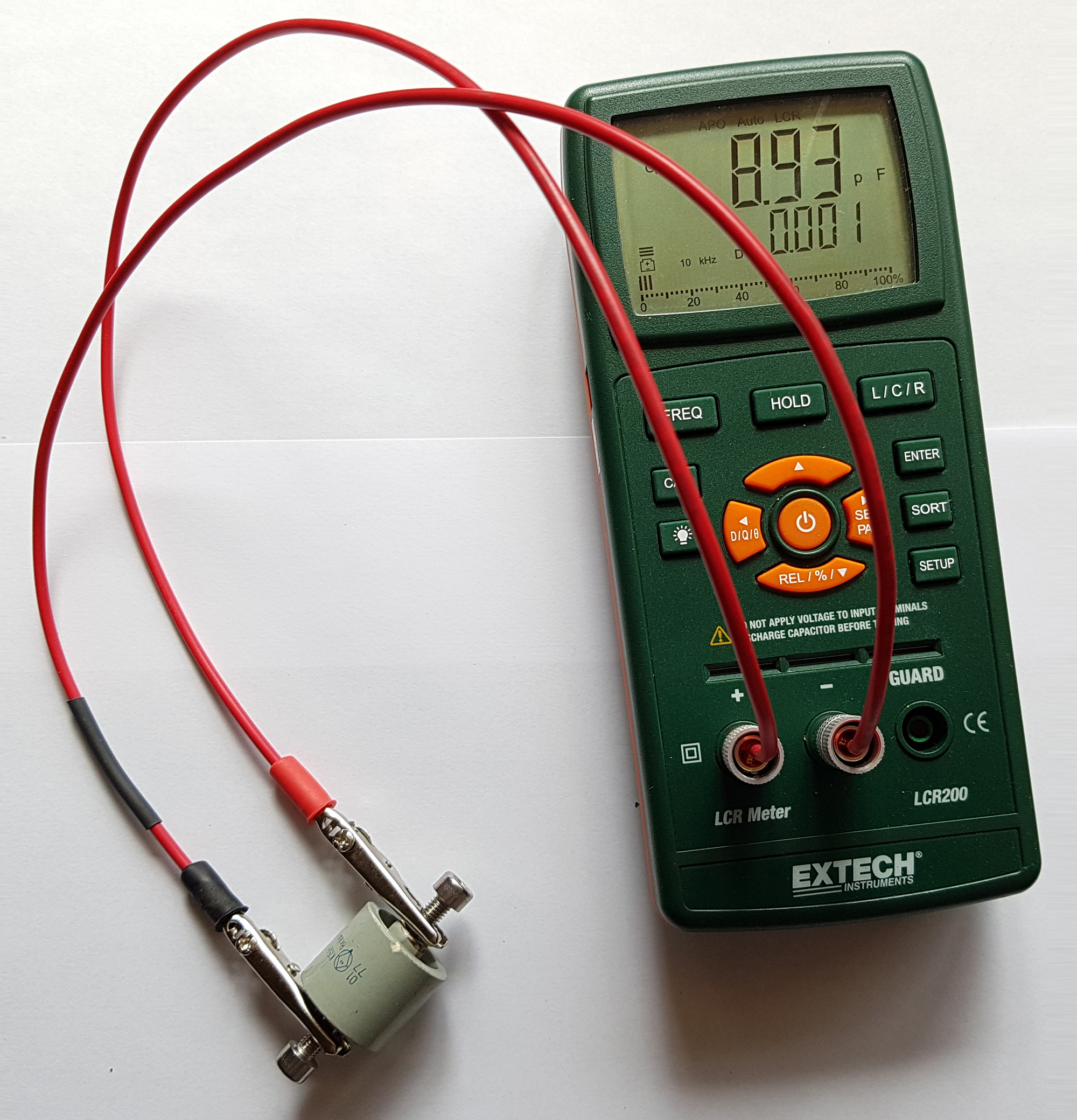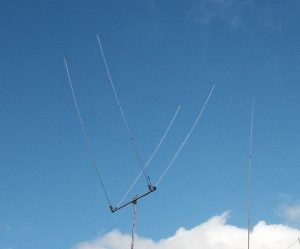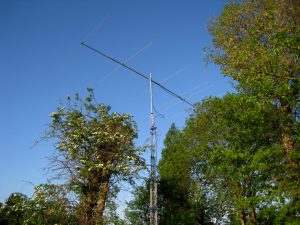Extech LCR-200 Commercial Grade LCR Meter
Here’s a really nice piece of test gear. Whilst there’s a good plentiful choice of hardware when it comes to choosing a multi-meter, good specialist test pieces for measuring resistance, capacitance and inductance [LCR] are few and far between unless you want to spend plenty of your hard-earned cash on an Agilent/HP or similar. Online there’s plenty ‘cheapo’ examples around but here’s a £300 handheld that I snapped up for £75 on EBay.

My own unit came as a used example, but was really ‘as new’ and in pretty near perfect condition. I’ve seen the odd one crop in in the last few months and rarely do they go for much more than I paid.
For electronic constructors, this is a nice pro-grade handheld unit and apart from being an LCR meter, will also measure secondary parameters of ‘Quality’ [Q], Dissipation [D] tan, Resistance [R], Phase [0] and importantly ESR. Measurements are taken at a default frequency of 1Khz but 4 other alternative test frequencies are available. These being 100Hz, 120Hz, 10KHz and 100KHz. The ‘Q’ is really useful in the design of coils and the ESR in the measurement of capacitors. The later I used when replacing the PSU capacitors in a Command Technologies HF2500 amplifier.
The unit has upper and lower limitations that can be user set. Hi/Lo limits can be set with percentage limits or absolute values, and there is a relative mode function available, too, as well as a series or parallel equivalent circuit. This meter also has an auto power off function, as well as over-range and low battery indicators. Accuracy looks to be exceptionally good when checking over the data sheet – not far off some of the high-end test bench units. Other features include a built-in test fixture and external test leads. Additionally, the short and open calibration gets rid of any unwanted stray impedances out of the measurements as needed.
The LCR-200 can be powered by an internal 9v battery or by using an external 1 amp 9v DC supply which uses a small DC power connector on the left hand side of the unit. Unfortunately, the manufacturer doesn’t give any info on the external DC supply and doesn’t seem to offer one which is a bit odd for sure – so I made my own as below.
I sourced the required 1.4mm DC jack power connector [centre pin positive] for a £1 on eBay and an external ‘Wall-Wart’ type 240v AC to 9v DC 1.5 amp adapter for £6 here in the UK which did a good job – so it’s worth having an external supply and saves spending $$ on heaps of 9v batteries.
For those interested, here’s the manufacturer’s info sheet and users instruction manual.
Additionally, here’s capacitor ESR table [just a general guide] and an info sheet on measuring capacitor health.
It’s a piece of test gear that’s certainly worth looking out for at the right price and gets a pretty good review at ‘TEquipment.net’.


